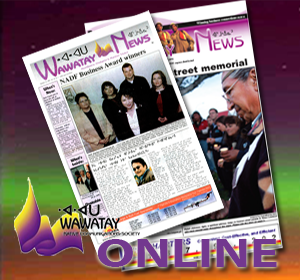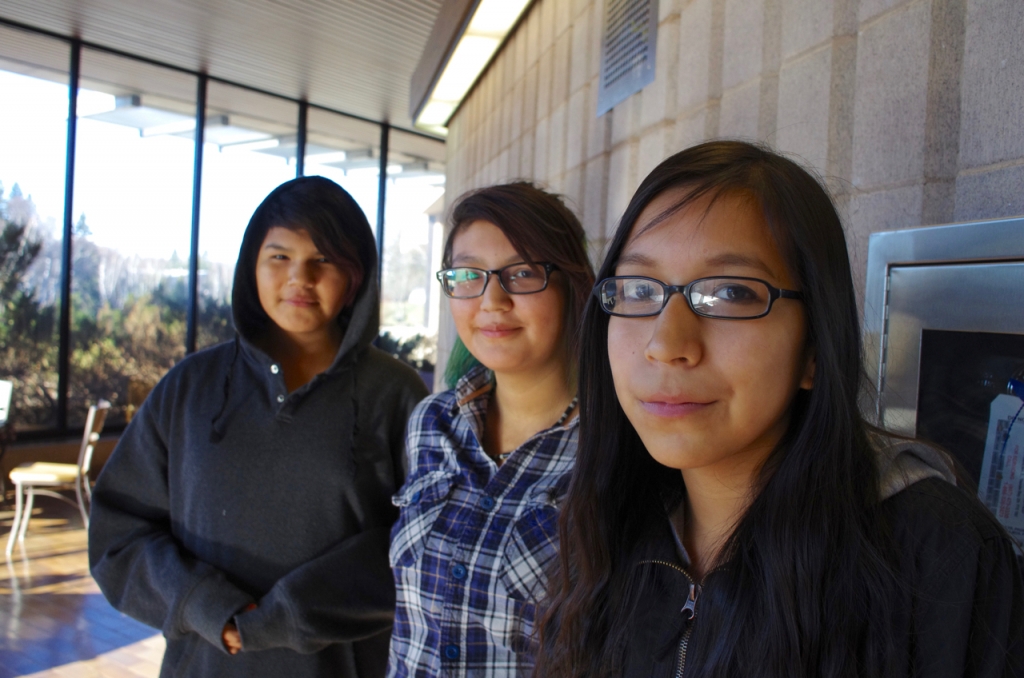Peawanuck’s Joyce Hunter raised the issue of children who died at residential school during the National Centre for Truth and Reconciliation (NCTR)’s Community Engagement Session at Lakehead University.
“My parents didn’t allow us to go swimming when I was a kid because their son died in a drowning (at residential school),” Hunter says. “They never really explained their own fears — there weren’t any mental health services in those days so they weren’t able to debrief and come to terms (with the death). So there are all these unresolved issues that we as the later children had to confront because of that experience.”
Hunter’s older brother Charlie drowned at residential school in Fort Albany in 1974. His body was returned to his parents in 2011 through fundraising efforts by Toronto Star readers.
“I cry for that little boy who died in Lake St. Anne’s,” Hunter says. “I cry for that mother who had lost her son while she was heavily pregnant.”
Hunter says she, as a parent now, could never imagine having to live the experiences her parents went through due to residential school.
“I wouldn’t wish that on my worst enemy,” Hunter says.
NCTR held the Nov. 9 community engagement session at Lakehead University’s Faculty Lounge to share information about the centre and gather feedback from community members on the best approach to implement the review and release of records for research and education.
The NCTR was set up at the University of Manitoba to house all the statements, documents and other materials collected by the TRC. The information will be sorted into three categories — public, redacted and restricted — with the public and redacted materials to be made available online at nctr.ca/map.php as time and resources permit.
“I am really happy that there is a push by the survivors and their families, and especially for those who didn’t return, to honour and respect their memory and to treat these records with reverence and sacredness,” Hunter says. “These aren’t just dusty old history books and documents that have picked up funny little smells along the way because of their age, but these are reflections of people’s lives in a time and a place that was dark and potentially could have been very harmful.”
Former grand chief Harvey Yesno wants to hear more from the NCTR about its “next steps.”
“Based on the (Truth and Reconciliation Commission’s) 94 Calls to Action, I wish we had an opportunity to discuss on each of those areas,” Yesno says. “What we had here today was a lot of young people, and they had some ideas. It would be really good to hear from them.”
Yesno says his residential school experiences impacted him for many years.
“Losing my mom at 11 years old, it took me 21 years later to finally deal with that,” Yesno says. “I didn’t understand what that is, the emotions you had to go through. I was angry, I blamed people, and so on.”
Yesno says the impacts from residential school affected how residential school survivors raised their children, including how he parented his own children. Even though he is fluent in Anishinabemowin, he did not teach the language to his children and grandchildren due to residential school impacts.
“All of that is contributing to how our younger generation is behaving and reacting,” Yesno says.
Eabametoong’s Lovina Moonias says the gathering was educational.
“What I’ve heard about residential school from my grandparents is they don’t treat you like how you would want to be treated,” Moonias says. “They treat you like you are nothing. They got abused, that’s why they drink and all that. It makes them feel better, I guess.”
Starr Moonias says her grandmother only speaks Anishinabemowin.
“I think she talks like that because she wasn’t allowed to speak her own language when she was in residential school,” Starr says.
The Thunder Bay community engagement session was one of 12 conducted by NCTR across the country.














I am the product, evolution of many thousands of years as are you. I grew up on the land in the remote far north of Ontario following in the footsteps of my...
One of the most beautiful serene places I’ve ever visited was on the banks of the Opinagau River in northern Ontario, just near the corner of land where...